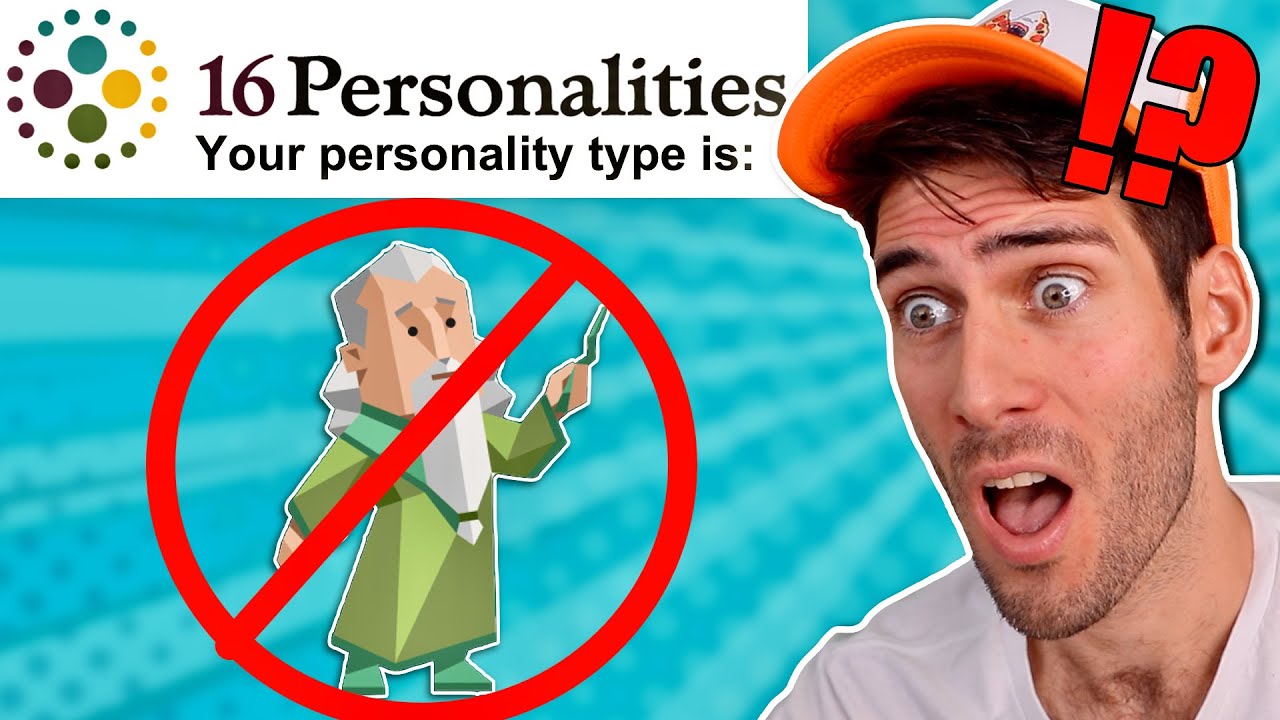Intro to the Enneagram || What are the 9 Personality Types?
Summary
TLDRIn this video, Frank James introduces the Enneagram of personality, explaining its nine types and how they stem from universal human struggles. He emphasizes that everyone can relate to all types but will identify most with one that reflects their core fear and desire. Frank discusses each type briefly, from the perfectionist (type 1) to the peacemaker (type 9), providing relatable descriptions to help viewers recognize themselves. The video also includes a sponsored mention of Audible and book recommendations to dive deeper into the Enneagram. It’s a fun yet insightful guide to understanding oneself better.
Takeaways
- 😀 The Enneagram is a personality tool designed to help individuals understand themselves better and foster personal growth.
- 😀 The Enneagram consists of nine types, each centered around a specific struggle or fear.
- 😀 Each personality type in the Enneagram is a result of early childhood experiences and potential trauma.
- 😀 The best way to identify your Enneagram type is by learning about the types themselves rather than taking a test.
- 😀 Type One (The Perfectionist) values order and ethics but struggles with judgment and a fear of being a bad person.
- 😀 Type Two (The Helper) is compassionate and giving but may become overly involved and manipulative out of fear of not being loved.
- 😀 Type Three (The Performer) is driven by success and validation but fears being worthless without external recognition.
- 😀 Type Four (The Artist) desires to be unique and different but struggles with feelings of brokenness and a lack of identity.
- 😀 Type Five (The Thinker) values knowledge and understanding but may feel inadequate in everyday life and relationships.
- 😀 Type Six (The Loyalist) is dependable and loyal but often struggles with anxiety and a lack of trust in their own judgment.
- 😀 Type Seven (The Enthusiast) seeks excitement and experiences but fears being limited or missing out on opportunities.
- 😀 Type Eight (The Challenger) is strong-willed and dominant but fears being controlled and may become combative.
- 😀 Type Nine (The Peacemaker) is easy-going and seeks harmony but struggles with conflict avoidance and a fear of losing relationships.
- 😀 The Enneagram can be explored further through books like 'The Road Back to You' and 'Personality Types,' both available on Audible.
- 😀 The speaker's tone is humorous and relatable, making the Enneagram concepts more approachable and engaging.
Q & A
What is the Enneagram of personality and what purpose does it serve?
-The Enneagram is a tool for understanding personality, focusing on the underlying struggles and fears that shape our behaviors. It helps individuals recognize their central struggles, guiding them toward self-awareness and personal growth.
Why does the speaker suggest learning about the Enneagram types instead of taking a test?
-The speaker recommends learning about the types directly because self-reflection and understanding each type’s core issues are more accurate in identifying one's type than relying on a test, which might not capture the complexity of personality.
What is the significance of the number nine in the Enneagram?
-The number nine refers to the nine types in the Enneagram system, which is visually represented as a nine-pointed figure. This reflects the idea that there are nine different personality types, each centered around unique struggles.
How do Enneagram teachers believe personality types develop?
-Enneagram teachers theorize that personality types develop during childhood, often due to a form of trauma or significant life event. As a result, individuals adopt behaviors to protect themselves from their core fears.
What role does self-awareness play in the Enneagram system?
-Self-awareness is key in the Enneagram system. By understanding the type's core fears, desires, and struggles, individuals can develop healthier behaviors and make strides in their personal growth and self-improvement.
What is the main struggle for Type One, The Perfectionist?
-Type Ones, or Perfectionists, struggle with the fear of being bad or imperfect. This fear drives them to maintain high ethical standards, and they may become judgmental or intolerant when others violate their principles.
What is the central fear for Type Two, The Helper?
-Type Twos fear that they will not be loved or needed if they are not constantly giving of themselves. This fear can lead them to be overly involved in others' lives, sometimes to the point of being manipulative or selfish.
What motivates Type Three, The Achiever, and what do they fear?
-Type Threes are motivated by success, validation, and attention. They fear being worthless without external validation and feel the need to demonstrate their success through achievements and status symbols.
What is the unique struggle of Type Four, The Artist?
-Type Fours struggle with feelings of being uniquely different in a disadvantaged way. They often try to express their uniqueness through creative outlets or personal identity, seeking to prove their worth and individuality.
How does Type Five, The Investigator, cope with their fear of being useless?
-Type Fives cope with their fear of being useless by accumulating knowledge and expertise in specialized areas. They focus on understanding the world deeply to feel valuable, though they may struggle with everyday practical matters.
What is the core fear of Type Six, The Loyalist?
-Type Sixes fear abandonment and often lack trust in their own inner guidance. They seek security and loyalty from others and are known for being reliable, but they can also be anxious and overly dependent on external support.
What drives Type Seven, The Enthusiast, and what do they fear?
-Type Sevens are driven by a desire for new experiences and the fear of missing out. They avoid limitations and seek constant excitement, but their fear of being confined can lead them to overindulge in activities.
Why does Type Eight, The Challenger, focus so heavily on power?
-Type Eights focus on power because they fear being controlled or weak. They assert control in relationships and interactions, believing that power dynamics govern every situation.
What is the struggle faced by Type Nine, The Peacemaker?
-Type Nines struggle with being out of touch with their own needs and desires. They fear conflict and often try to avoid it, going with the flow of others’ opinions, which can lead to a lack of assertiveness and individuality.
Outlines

Cette section est réservée aux utilisateurs payants. Améliorez votre compte pour accéder à cette section.
Améliorer maintenantMindmap

Cette section est réservée aux utilisateurs payants. Améliorez votre compte pour accéder à cette section.
Améliorer maintenantKeywords

Cette section est réservée aux utilisateurs payants. Améliorez votre compte pour accéder à cette section.
Améliorer maintenantHighlights

Cette section est réservée aux utilisateurs payants. Améliorez votre compte pour accéder à cette section.
Améliorer maintenantTranscripts

Cette section est réservée aux utilisateurs payants. Améliorez votre compte pour accéder à cette section.
Améliorer maintenantVoir Plus de Vidéos Connexes

What is the Enneagram?

The Biological Basis of Personality: "Dr T" Tina Thomas at TEDxCitadelPark

Revealing my TRUE Personality Type (16 Personalities Test)

Life as an INFP 4w5

Surrounded by Idiots (Animated Book Summary) | Thomas Erikson | Avoid Conflicts With People

16 Personalities: Why Type 8 ENTJ is a BAD combination
5.0 / 5 (0 votes)
